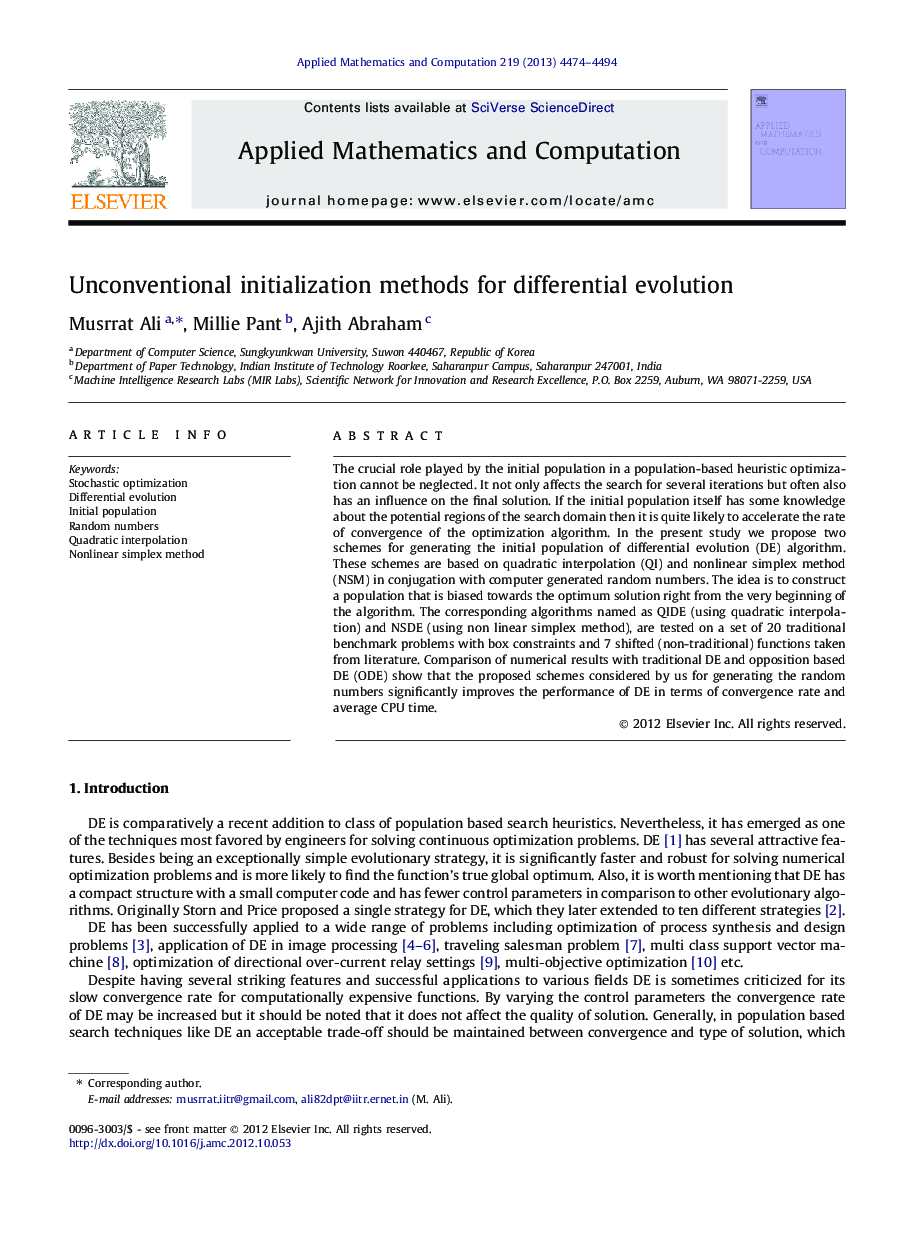| Article ID | Journal | Published Year | Pages | File Type |
|---|---|---|---|---|
| 4629211 | Applied Mathematics and Computation | 2013 | 21 Pages |
The crucial role played by the initial population in a population-based heuristic optimization cannot be neglected. It not only affects the search for several iterations but often also has an influence on the final solution. If the initial population itself has some knowledge about the potential regions of the search domain then it is quite likely to accelerate the rate of convergence of the optimization algorithm. In the present study we propose two schemes for generating the initial population of differential evolution (DE) algorithm. These schemes are based on quadratic interpolation (QI) and nonlinear simplex method (NSM) in conjugation with computer generated random numbers. The idea is to construct a population that is biased towards the optimum solution right from the very beginning of the algorithm. The corresponding algorithms named as QIDE (using quadratic interpolation) and NSDE (using non linear simplex method), are tested on a set of 20 traditional benchmark problems with box constraints and 7 shifted (non-traditional) functions taken from literature. Comparison of numerical results with traditional DE and opposition based DE (ODE) show that the proposed schemes considered by us for generating the random numbers significantly improves the performance of DE in terms of convergence rate and average CPU time.
